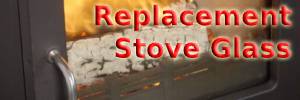A man from Merseyside has been able to meet and thank the staff at the ambulance service, who all played a role in his survival after he suffered a cardiac arrest last year.
Retired police officer Ray Hughes, 78, from Widnes, had been walking with five friends near the M62 motorway at Rainhill Stoops in September when he suddenly fell ill and collapsed.
Fortunately, one of the group, Greg Wood, is a North West Ambulance Service (NWAS) volunteer, an enhanced Community First Responder (eCFR). He instantly recognised the signs of cardiac arrest and started cardiopulmonary resuscitation (CPR) while the others tried to pinpoint their location and call 999.
The first medical crews began arriving within seven minutes, pulling up on the hard shoulder of the motorway and making their way over the barrier to begin treatment. Thankfully, the medics managed to return Ray’s heart rhythm after 28 minutes. He was then carried down the motorway embankment to the ambulance and rushed to Broadgreen Hospital for further treatment. Ray has since had a successful triple bypass operation and has been recovering at home.
Along with his friends and family, Ray took the opportunity to reunite with his rescuers at NWAS Merseyside HQ in Speke. He also had the chance to meet the staff who dealt with the incident in the control room, take the 999 call, and organise help to arrive.
Dave Kitchin, Head of Operations for Merseyside and Cheshire, said, “It was such a pleasure to meet Ray and his family. I’m delighted that so many of those involved in the incident were able to come along too and see him again in much more positive circumstances. It’s not often that staff can find out what happens to patients after we take them to the hospital, and when it’s a positive outcome, it’s always nice to mark it.”
More than 10 NWAS staff were involved in the effort to save Ray: Three paramedics, an emergency medical technician, a critical care doctor and an air ambulance pilot treated him at the scene. A call handler took the initial 999 call, and then several dispatchers and control staff allocated the crews and the helicopter to the scene.
Dave adds, “I’m very proud of the team effort by all the staff associated with the incident. It just shows how many people can be involved in saving a life. Not just the frontline teams, but all the behind-the-scenes functions that keep the service running as well.”
Ray said, “I’m incredibly grateful to my friends and everyone involved in my rescue. They have given me another chance at life. Meeting all the people involved to offer my thanks is the least I can do. It’s been a great experience for me and my family to meet them face-to-face.
“Obviously, I don’t remember much about what happened. I was awake by the time reached the hospital but was very confused. I feel incredibly lucky to be here today, and it was in part down to the professionalism, expertise, and determined actions of the ambulance service and staff that attended that day.
Greg Wood said: “I’ve been an enhanced community first responder for the North West Ambulance Service for a long time now. When I’m available to respond, NWAS can send me to similar situations when I may be able to get to patients quickly and start immediate care.
“As this incident shows, the importance of learning CPR and basic life-saving skills is crucial. The speed at which I was able to recognise what had happened to Ray and start chest compressions undoubtedly played a role in his survival, as did the expert work of the ambulance service and medics at the hospital. I would encourage anyone to learn these skills, and if they want to take it a step further, volunteer for the ambulance service like me.”
Cardiac arrest occurs when the heart suddenly stops beating, leading to a cessation of blood flow to vital organs, including the brain. Every minute without intervention significantly decreases the chances of survival. Immediate and proper response, such as CPR and the use of automated external defibrillators (AEDs), can make a crucial difference in the outcome.
More information is available at http://www.nwas.nhs.uk/get-involved/...o-save-a-life/ .
Or if you fancy becoming an NWAS volunteer, visit https://www.nwas.nhs.uk/get-involved/volunteering/

|
|
||||||
Check Todays Deals on Ebay.co.uk Your Comments:
Custom Search

|
You are in:
UK /
Greasby / North West
Find any Town in the UK, or Use UK map Local Google MAP for Greasby Check Todays Deals On Amazon.co.uk Check Todays Deals on Ebay.co.uk 


 Be Seen - Advertise on Qlocal Corporate Sponsors
Southport Piano and Music Academy Washroom Services Maximum Grounds Maintenance Southport Garden Services Ormskirk Garden Services Sanitary Bins Nappy Bins & Waste Disposal Confidential Shredding Services Legionella Risk Testing London Washroom Services Croydon Washroom Services Hounslow Washroom Services Wandsworth Washroom Services Havering Washroom Services Sanitary Bins London Clinical Waste London General Waste London Legionella Testing London Shredding London Tatoo Waste London Preston Bird Control Blackpool Bird Control
UK, Local Online News Community, Forums, Chats, For Sale, Classified, Offers, Vouchers, Events, Motors Sale, Property For Sale Rent, Jobs, Hotels, Taxi, Restaurants, Pubs, Clubs, Pictures, Sports, Charities, Lost Found
greasby,
greasby News,
|
|||||




 Reply With Quote
Reply With Quote